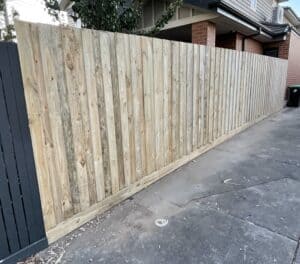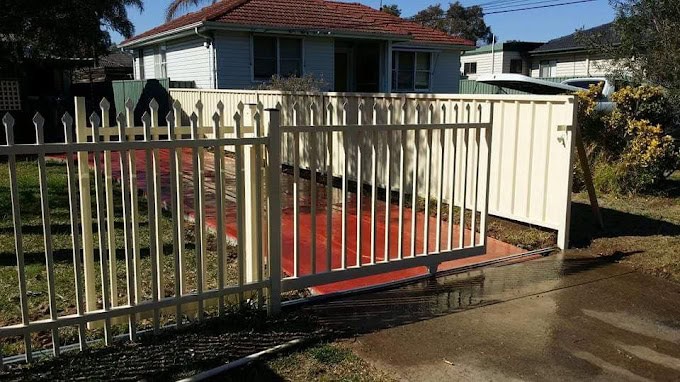Introduction
In a world increasingly focused on sustainability, the value of environment-friendly options can not be overstated. When it concerns home construction and restoration, fencing is typically neglected as an opportunity for sustainable practices. However, the choice of products and setup methods can have a significant environmental impact. In Melbourne, many fence builders and fencing contractors are stepping up to offer environmentally friendly fencing choices. This post explores different sustainable fencing options readily available in Melbourne, stressing the competence and dependability of regional fence installers

Eco-Friendly Fencing Options with Sustainable Professionals in Melbourne
When picking fencing for your home, it's important to think about not just visual appeals and performance however also the ecological effect of your choices. Sustainable professionals in Melbourne focus on offering environmentally friendly fencing options that make use of sustainable resources and minimize waste.
What Makes Fencing Eco-Friendly?
Eco-friendly fencing involves utilizing products that are sustainable, recyclable, or biodegradable. Here are some attributes of eco-friendly fencing:
- Sustainable Products: Utilizing wood from responsibly handled forests. Recyclability: Selecting materials that can be recycled at the end of their life cycle. Durability: Selecting fencing that requires less regular replacement decreases waste over time. Local Sourcing: Utilizing locally sourced products to decrease transportation emissions.
Why Pick Sustainable Fencing?
Choosing environmentally friendly choices not only assists the environment but can likewise boost your home's value. It shows a commitment to sustainability that numerous property buyers appreciate. Moreover, sustainable materials typically include service warranties and require less maintenance.
Types of Eco-Friendly Fencing Options Available
Timber Paling Fences
Timber paling fences are among the most popular types of fencing among house owners in Melbourne. Made from sustainably sourced timber, these fences supply a natural look while being eco-friendly.
Advantages:
- Biodegradable at the end of their lifespan. Versatile designs can fit any style.
Disadvantages:
- Requires regular upkeep to avoid rot.
Colorbond Fences
Colorbond fences are made from steel coated with long lasting paint. They are not just sturdy but likewise been available in numerous colors.
Advantages:
- Long-lasting and resistant to extreme weather condition conditions. Recyclable at the end of their lifecycle.
Disadvantages:
- Higher preliminary cost compared to wood.
Aluminium Blade Fences
Lightweight yet robust, aluminium blade fences provide contemporary aesthetic appeals while being an environment-friendly option.
Advantages:
- Rust-resistant and needs minimal upkeep. 100% recyclable material.
Disadvantages:
- Initial expenses can be greater compared to conventional wooden fences.
Aluminium Slat Fences
Similar to aluminium blade fences, aluminium slat fences offer privacy without sacrificing airflow.
Advantages:
- Stylish appearance boosts residential or commercial property value. Low-maintenance option with long-term durability.
Disadvantages:
- Can be more costly than timber options.
Tubular Metal Fences
These fences provide both security and visual appeal while being made from recyclable metal.
Advantages:
- Highly resilient; typically utilized for pool areas or security purposes.
Disadvantages:
- Limited design versatility compared to wood options.
Picket Fences
A traditional choice for many homeowners, picket fences supply appeal while remaining eco-friendly if made from sustainable wood or composite materials.
Advantages:
- Timeless style ideal for different architectural styles.
Disadvantages:
- Requires periodic upkeep to maintain appearance.
Glass Fences
Glass fences use unobstructed views while keeping safety around swimming pools or patios.

Advantages:
- Modern look that enhances outdoor spaces.
Disadvantages:
- High costs connected with setup and maintenance.
Pool Fences
Safety guidelines frequently require swimming pool areas to be partitioned, making eco-friendly pool fence choices necessary for families prioritizing safety along with sustainability.
The Role of Sustainable Professionals in Melbourne
Engaging a knowledgeable professional specializing in sustainable practices is essential when setting up environment-friendly fencing. Here's what sets them apart:
Expertise in Sustainable Materials
Sustainable specialists understand which materials are best fit for various environments and how they affect total sustainability objectives.
Access to Innovative Solutions
They stay updated on the current innovations and methods that contribute to green structure practices, including energy-efficient installations that reduce carbon footprints.
Commitment to Local Sourcing
By sourcing in your area produced materials, sustainable contractors help reduce emissions connected with transporting items over long distances while supporting local economies.
FAQs
1. What are the most common kinds of eco-friendly fencing?
Common types consist of timber paling fences, Colorbond fences, aluminium blade fences, tubular metal fences, glass fences, picket fences, and pool fences-- all providing varying degrees of sustainability based on their products and building methods.
2. How do I discover reputable fence installers in Melbourne?
You can search online directories or regional http://andresfence-contractorqfch120.lowescouponn.com/what-makes-a-great-fence-installer-insights-from-melbourne-s-finest company listings focusing on evaluations and suggestions from previous clients who have engaged them for comparable tasks involving sustainable practices.
3. Are there government incentives for picking eco-friendly materials?
Some regional councils may use rewards or refunds for utilizing eco-friendly products as part of more comprehensive efforts aimed at promoting sustainability within communities-- consult your local council for offered programs!
4. Just how much does eco-friendly fencing typically cost?
Costs vary significantly depending upon material choice, size requirements, labor associated with setup, and additional features like gates or ornamental elements-- but budgeting in between $50-$120 per direct meter is common throughout various options!
5. Can I construct my own fence utilizing sustainable materials?
Absolutely! Many house owners select do it yourself projects utilizing sustainably sourced wood or recycled metals-- however ensure you adhere strictly to regional building regulations concerning height restrictions or precaution before proceeding!
6. What is feature fencing?
Feature fencing serves as both a functional barrier as well as a visually pleasing aspect suggested to improve curb appeal-- frequently made from special mixes such as timber slats paired along with color-coated metal accents!

Conclusion
Choosing environment-friendly fencing choices not just contributes positively towards environmental conservation but likewise elevates your residential or commercial property's visual appeal while boosting its market value! With numerous options such as timber paling fences or modern-day Colorbond varieties readily available through credible fencing contractors throughout Melbourne-- making informed choices ends up being vital! Partnering with well-informed fence installers ensures you get skilled guidance tailored specifically towards your distinct requirements whilst fostering higher neighborhood engagement through responsible sourcing practices! Check out these diverse choices today-- and change your outside area into a personification of sustainability!
In summary, investing time into understanding your choices relating to eco-friendly fencing options will settle-- not just environmentally but likewise socially within our communities here in stunning Melbourne!